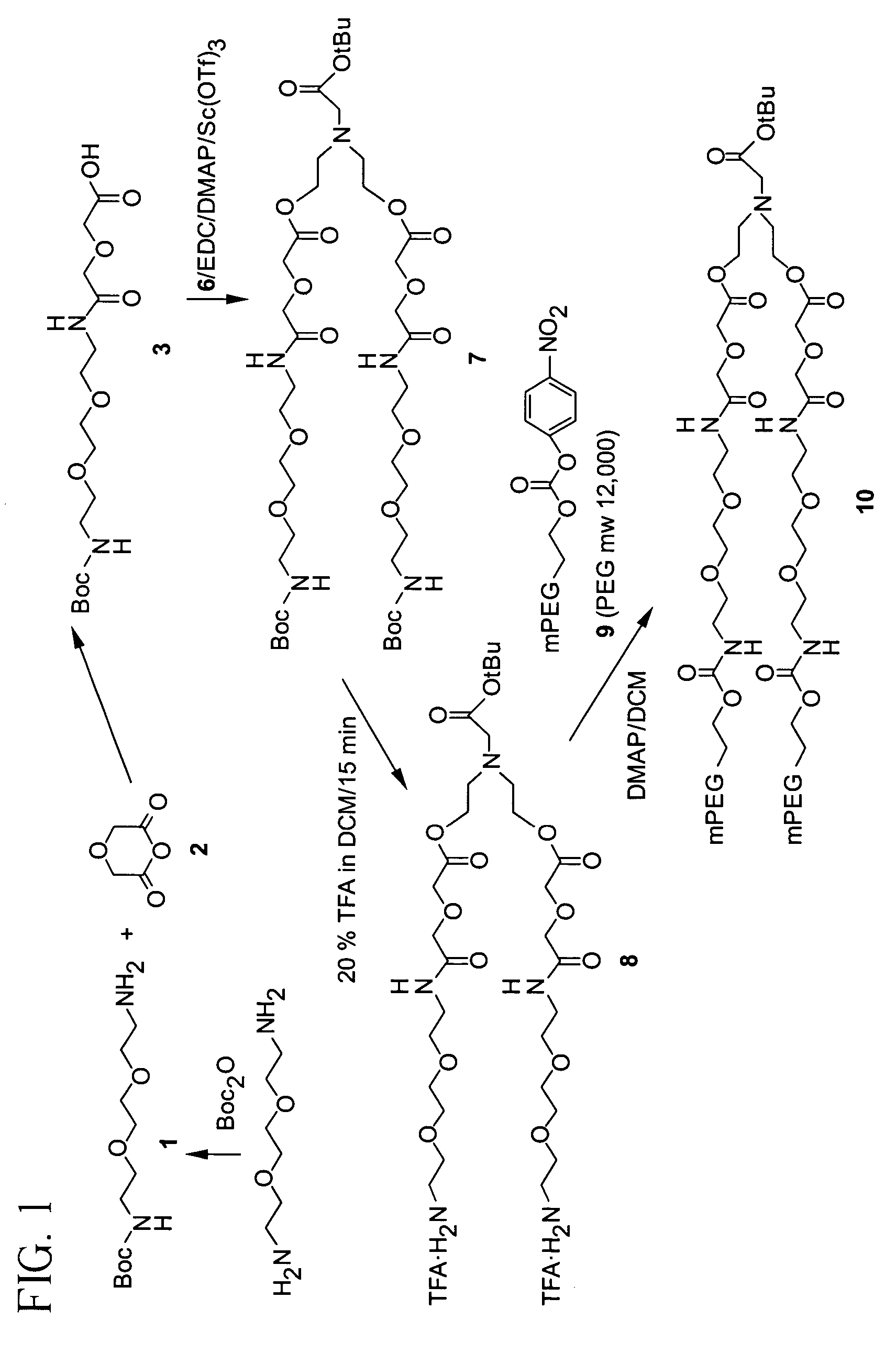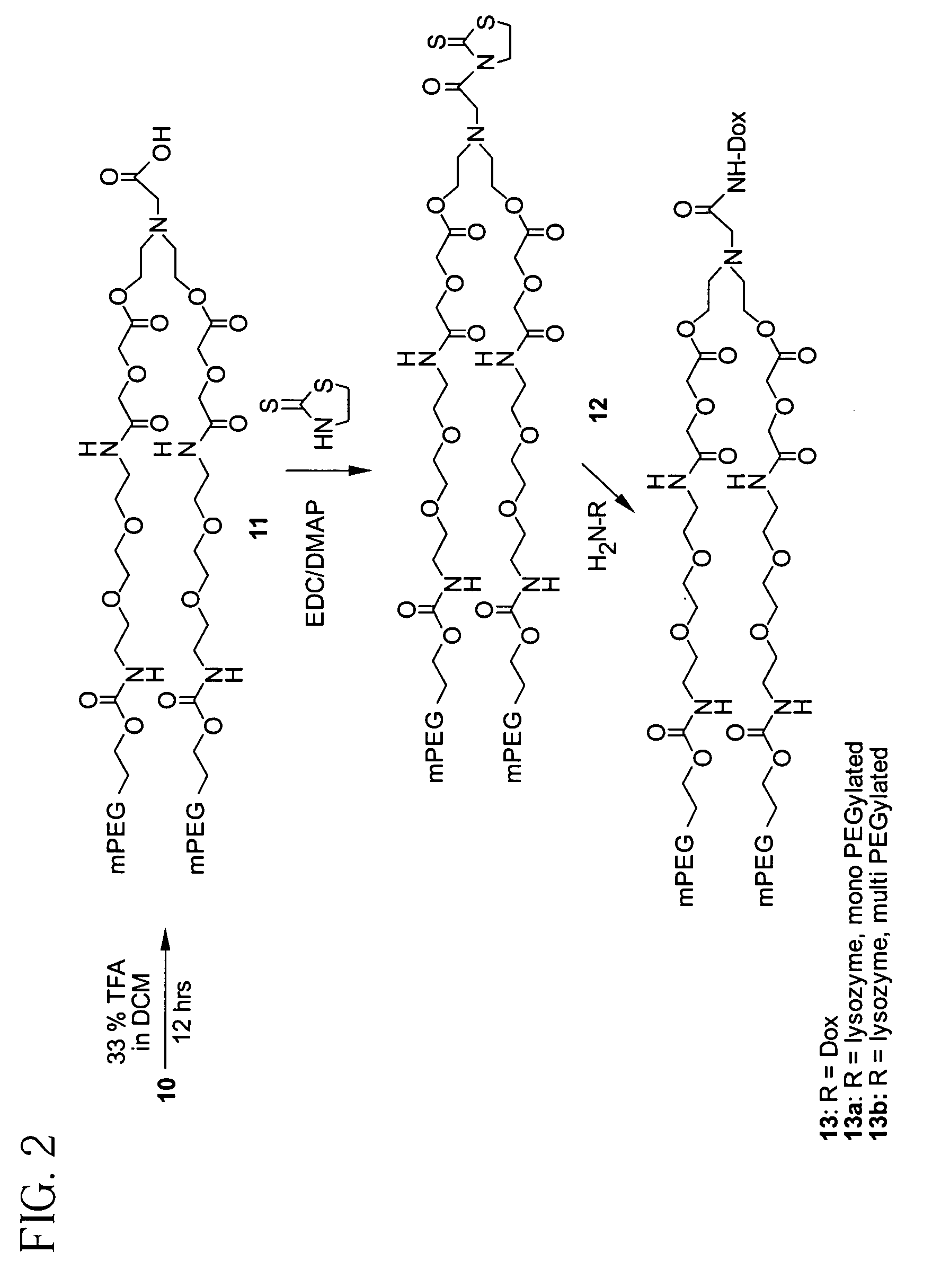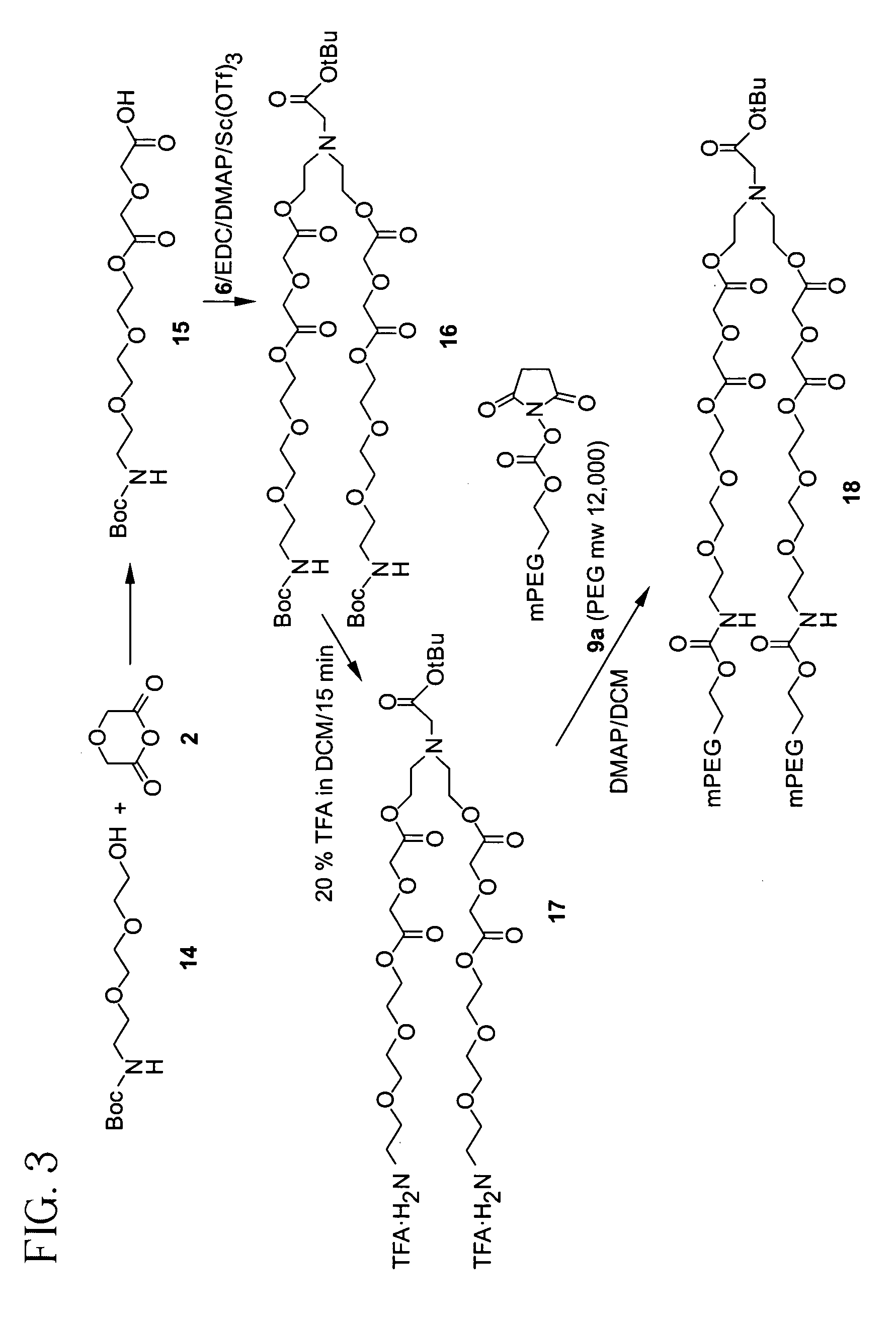Releasable polymeric conjugates based on aliphatic biodegradable linkers
a biodegradable linker and polymer technology, applied in the field ofbranched polymers, can solve the problems of loss of activity, difficult preparation of materials, and high cost of use, and achieve the effect of increasing aqueous solubility and circulating li
- Summary
- Abstract
- Description
- Claims
- Application Information
AI Technical Summary
Benefits of technology
Problems solved by technology
Method used
Image
Examples
example 1
Synthesis of Compound (1)
[0210]To a solution of di-tert-butyl dicarbonate (15 g, 0.086 mol) in 1,4-dioxane (150 mL) cooled to 5° C. in an ice bath was added dropwise a solution of 2,2′-(ethylenedioxy)bis(ethylamine) (25.85 g, 174.4 mmol) in 1,4-dioxane (100 mL) over a period of 1 hr. The reaction mixture was allowed to warm to room temperature and stirred for two more hours. The solvent was removed under reduced pressure and the residue dissolved in methylene chloride (DCM, 150 mL), washed with water (3×150 mL), dried (MgSO4), filtered, and the solvent evaporated under reduced pressure to yield 1 (13.84 g, 0.0688 mmol, 80%). 13C NMR (75.5 MHz, CDCl3) δ, 115.76, 79.03, 73.45, 70.12, 40.31, 28.39.
example 2
Synthesis of Compound (3)
[0211]A solution of 1 (3.0 g, 12.1 mmol), diglycolic anhydride (2, 1.26 g, 10.9 mmol), and DMAP (1.4 g, 11.5 mmol) in anhydrous DCM (30 mL) was stirred at room temperature for 18 hrs. The mixture was washed with 0.1 N HCl (30 mL), and the organic layer was dried (anhydrous sodium sulfate), filtered, and the solvent removed under reduced pressure to yield 3 (1.5 g, 4.14 mmol, 38%). 13C NMR (75.5 MHz, CDCl3) δ 173.37, 171.27, 169.94, 169.59, 157.81, 155.96, 81.15, 79.30, 71.78–68.76 (m), 41.59, 40.13, 38.94, 38.73, 28.27.
example 3
Synthesis of Compound (6)
[0212]A solution of 4 (24.0 g, 0.228 mol) and 5 (12.0 g, 0.061 mol) in anhydrous methylene chloride (DCM, 400 mL) was stirred at room temperature for 18 hrs. The reaction mixture was washed with water (4×150 mL), and the organic layer dried over anhydrous sodium sulfate, followed by filtration and removal of the solvent in vacuo to yield 6 (6.1 g, 0.0279 mol, 46%). 13C NMR (67.8 MHz, CDCl3) δ 172.1, 81.4, 59.5, 57.0, 56.3, 27.8.
PUM
| Property | Measurement | Unit |
|---|---|---|
| weight average molecular weight | aaaaa | aaaaa |
| pH | aaaaa | aaaaa |
| weight average molecular weight | aaaaa | aaaaa |
Abstract
Description
Claims
Application Information
 Login to View More
Login to View More - R&D
- Intellectual Property
- Life Sciences
- Materials
- Tech Scout
- Unparalleled Data Quality
- Higher Quality Content
- 60% Fewer Hallucinations
Browse by: Latest US Patents, China's latest patents, Technical Efficacy Thesaurus, Application Domain, Technology Topic, Popular Technical Reports.
© 2025 PatSnap. All rights reserved.Legal|Privacy policy|Modern Slavery Act Transparency Statement|Sitemap|About US| Contact US: help@patsnap.com



